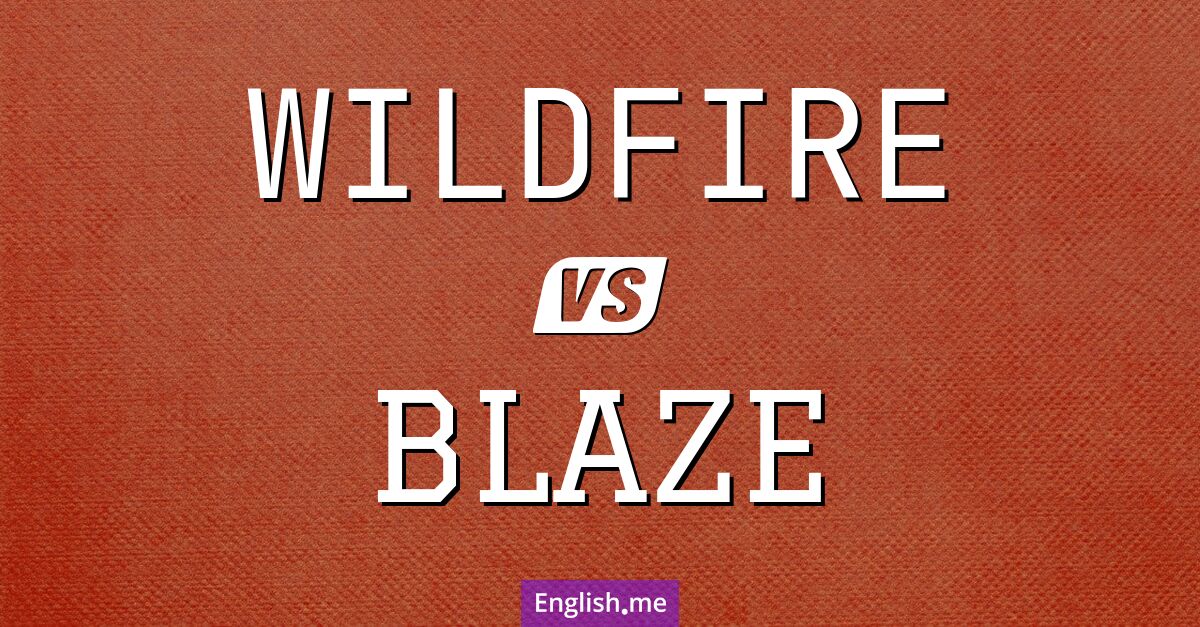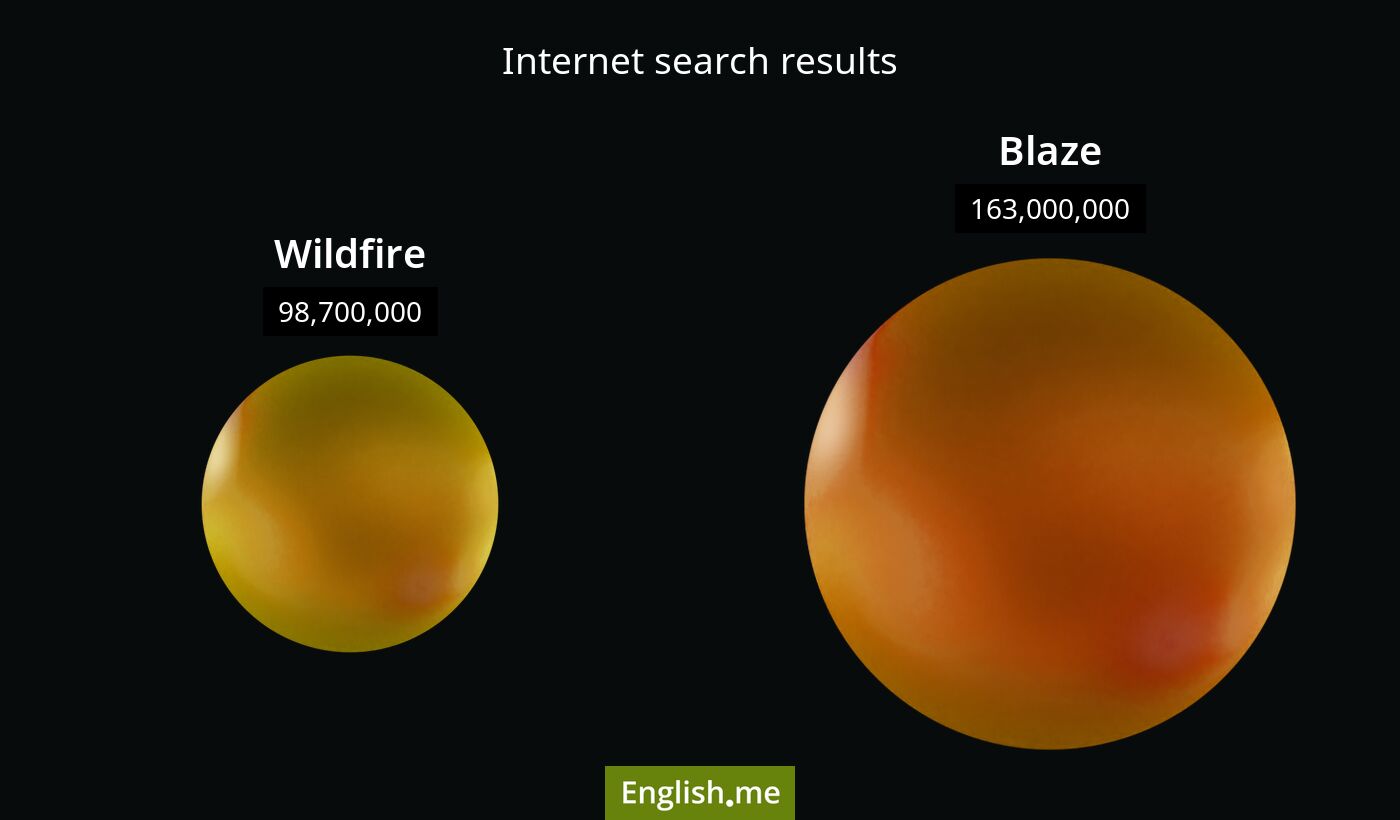"Wildfire" and "blaze": the burning difference
Reviewed and edited by  Lloyd Cooper 22/03/2025, 06:50
Lloyd Cooper 22/03/2025, 06:50
English.me team member

 What is similar?
What is similar?
Both "wildfire" and "blaze" refer to intense fires that can spread rapidly and cause significant damage. They are associated with large, uncontrolled fires that often require firefighting efforts to suppress.
 What is different?
What is different?
"Wildfire" specifically denotes a large, destructive fire that spreads quickly over woodland, brush, or grassland areas in the wild. It is typically caused by natural phenomena or human activities in rural areas. "Blaze", on the other hand, is a more general term used to describe any fierce fire, not necessarily in wild areas. It can refer to fires in urban settings, structures, or even be used metaphorically to describe something displaying intense emotion or brilliance.
 Which one is more common?
Which one is more common?

 Examples of usage
Examples of usage
Wildfire- The wildfire consumed thousands of acres of forest within days.
- Authorities issued evacuation orders as the wildfire approached the town.
- Prolonged dry conditions have increased the likelihood of wildfires this season.
- Firefighters worked tirelessly to extinguish the blaze at the factory.
- A cozy blaze crackled in the fireplace on the cold winter night.
- Her eyes were a blaze of determination as she accepted the challenge.

 English
English español
español française
française italiano
italiano deutsche
deutsche 日本語
日本語 polski
polski česky
česky svenska
svenska Türkçe
Türkçe Nederlands
Nederlands